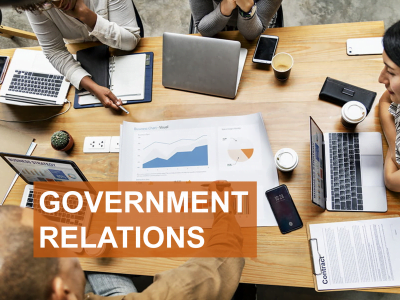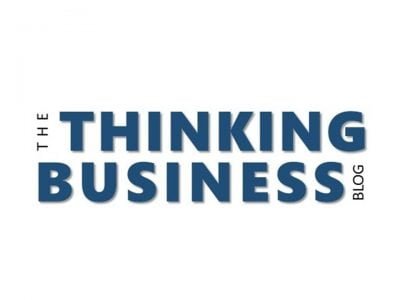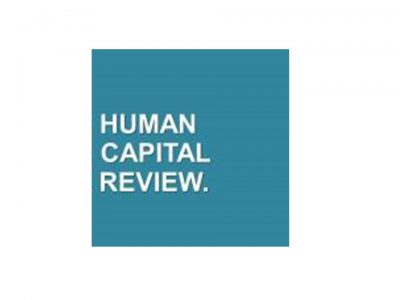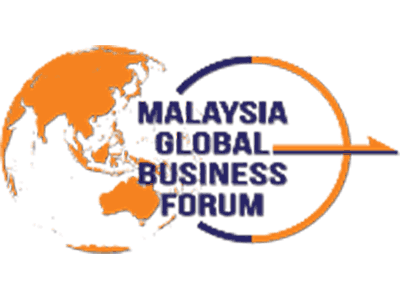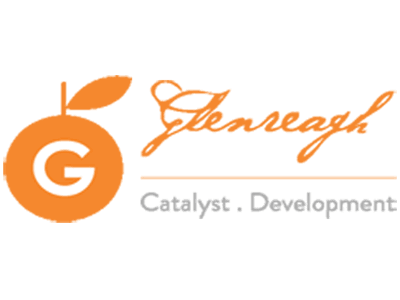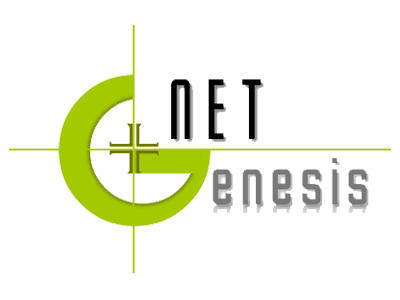HONG KONG SAR – Media OutReach – 24 June 2021 – Cushman & Wakefield, a leading global real estate services firm, and the U.S. Green Building Council (USGBC) jointly released the report – Carbon Neutrality – Shifting to neutral to drive real estate sustainability.
China’s 14th Five Year Plan (FYP) looks set to build upon the environmental sustainability initiatives China has undertaken in the past. Strengthened climate and air pollution control measures will ensure the road ahead in the region will be healthier and cleaner as the country moves to carbon neutrality by 2060.Over the years, China’s economic growth considerably amplified the energy use by the built environment in the country. In order to reduce the amount of energy used by, and carbon emissions from, buildings in China, it will be important to take the next step and go carbon neutral.
Jing Wang, Director, North Asia, U.S. Green Building Council & Green Business Certification Inc. said, “Green buildings is not only a practical solution for the real estate industry to address climate change, responding to growing attentions from policy makers and investors. With buildings contributing to 40% of global carbon emissions, green buildings also play an essential role for the industry and the country to achieve carbon neutral goals. The development of LEED green buildings in China recent years also testifies this trend – projects participating in LEED are much more diversified, from new buildings to existing buildings, from grade A office buildings to entire portfolios.”.
A whole lifecycle carbon reduction plan – a road map for real estate investors/developers/ landlords in china
Through best-practice design and choice of materials used, efficient buildings with low energy and water use can be visualised and built. Energy demand can be lessened by augmenting the building volume and positioning, by means of vigilant design of the building envelope and by stipulating energy/water efficient building services and controls.
Looking at whole building lifecycle carbon, the amount of energy and water used during a building’s lifespan needs to be considered. When ruminating on this, many aspects about a building project have to be assessed. Before building, operating and re-using/dismantling a building, it will be important to execute on the right whole building lifecycle approach and to do this, the following elements will also need to be taken into consideration: carbon offsetting; carbon avoidance; embodied carbon, and operational carbon.
Carbon offsetting
Carbon offsetting can allow real estate investors, developers and landlords in China to construct and operate a real estate project in a location without that particular project being necessarily green in any way. In this case, carbon offsets (certificates that represent the reduction of one metric ton of carbon dioxide emissions) can be bought by the investor, developer or landlord to fund a green carbon offset project. What’s more, this green carbon offset project could be in a completely different part of the country. By purchasing, carbon offset certificates, the GHG emission impact on the environment from an investor’s, developer’s or landlord’s own project can be lessened. Moreover, if emissions for the real estate project are actually impossible to reduce, the investor, developer or landlord can use offsetting funds to help reduce emissions elsewhere in another location.
Carbon avoidance
For real estate investors, developers and landlords, carbon avoidance is about: building nothing; building less; building clever; building efficiently; operating clever, and/or; operating efficiently.
Embodied carbon
Embodied carbon relates to emissions linked with a number of activities associated with a building’s lifecycle, such as the extraction of raw materials, the transportation of raw materials to the factory, product manufacturing, the transportation of products to the site, building construction, use and maintenance of the building, building refurbishment/building demolition, the transportation of waste materials from the site and the storing the waste material at a landfill.
Operational carbon
Operational carbon is more or less the collective carbon dioxide emissions produced for a building to run throughout its operational lifecycle.
Energy efficiency measures and systems which concern the heating/cooling equilibrium of buildings can be challenging to augment. This is because the amount of yearly carbon emissions from space heating and cooling are often quite analogous. Having said this, there are a number of energy efficiency concepts, measures and systems which commercial building investors, developers and landlords in China can employ.
Other considerations and what’s in it for real estate investors, developers and landlords
Alton Wong, Senior Director , Head of Advisory Services, Valuation and Advisory Services, Greater China, Co-head of Smart and Green Services, Greater China, Cushman & Wakefield, said: ” The COVID-19 pandemic has made commercial real estate investors, developers and landlords in China increasingly aware of the importance of health, safety, well-being and environmental sustainability to buildings. The further promotion of environmental sustainability by various government agencies, and investment capital driven by the ESG (Environmental, Social and Governance) principle and/or environmental sustainability, such as green financing capital, have also attracted great public attention. ” Given, the ‘green’ development momentum of late, these drivers are increasingly going to become key influencers in the development and operation decision making of commercial building investors, developers and landlords in China.
Selected criteria behind ESG

Source: BWFA, Cushman & Wakefield Research
Hong Kong Market
For Hong Kong, in 2019, the Hong Kong Stock Exchange began to gradually tighten its environmental, social, and governance information disclosure policies. All issuers now not only need to publish ESG reports, but they must also comply with stricter reporting guidelines. This will have a profound impact on mainland and Hong Kong developers listed on the Hong Kong Stock Exchange because they must strengthen their efforts in green building and sustainable development to avoid falling behind their peers.
More and more real estate developers and real estate fund companies have joined Global Real Estate Sustainability Benchmark (GRESB). Companies operating in China, like Swire Properties, New World Development, China Resources Group, Sino-Ocean Group, and CITIC Capital have all been participating in the assessment for many years. Green building in China is still continually developing and growing and alongside this development and growth, GRESB will be used more in the country for measuring the sustainability performance of real estate companies and real estate funds.
Shaun Brodie, Head of Occupier Research Greater China, Cushman & Wakefield, concluded: “Environmentally friendly commercial buildings often enjoy higher rentals and augmented market pricing. They are also often more resilient to any market downturns as they are still the location of choice for many occupiers. For the real estate around the world, including property in China, to play its part in reducing carbon emissions and natural resource usage in the future, carbon offsetting, carbon avoidance, embodied carbon and operational carbon must all be considered to approach decarbonisation holistically and create a world that is more sustainable.”
Please click here to download the report.
About Cushman & Wakefield

Services
Stakeholder mapping, analysis, engagement and communication needs to be detailed to avoid business losses or even worse, a crisis. How can you do this effectively to prevent failure? ...
Data-driven business decisions have never been as crucial, especially in this era. MGBF leverages off, technology, experience and market presence to aid businesses in making accurate decisions. ...
MGBF provides comprehensive strategic advice and results-focused solutions to solve clients' problems in business-government relations so they can focus on their core business. ...
A critical business challenge is meeting the right decision-makers and potential buyers through the best channel and platform. How will you improve your business competency? ...
Upcoming Events
In this episode of 'A Working Lunch with Nordin', MGBF's Nordin Abdullah and regional commentator Eddin Khoo will discuss the biggest threats and opportunities for businesses as we look to manage change in the South China Sea.
This MGBF Roundtable will feature thought leaders form Japan, Australia, Singapore and Malaysia dealing with the critical issues of manipulation of public listed companies and government and their financial impacts.
A series of networking sessions with various business associations and trade organisations exploring high-value opportunities for business leaders and entrepreneurs looking to build the relationships that matter.
This integrated event will include a forum, dedicated business matching, site visits, a gala dinner and a round of golf. Aptly themed, the focus will be on regional food security issues and trends in the context of the supply chain, agriculture technology and trade regulations and policies.
MGBF In The News
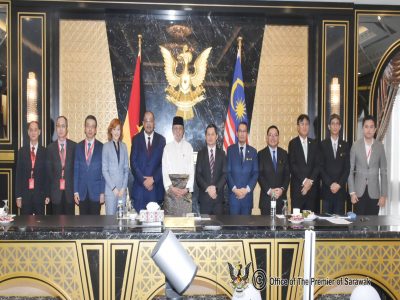
Planet QEOS and China Machinery Engineering Corporation (CMEC) are interested in investing RM10 billion to co-develop advanced Megawatt peak (MWp) agrovoltaic in Baram, to further boost Sarawak’s green energy initiative and food security. Sarawak Premier Datuk Patinggi Tan Sri Abang Johari Tun Openg was briefed on Friday by both the […]
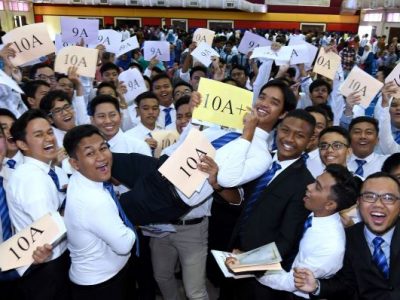
Last week SPM results came out, 373,974 aspirants who have been waiting patiently over the last few months would now know their fate. Some 10,109 have received all A’s, the golden standard of academic success and the ticket to those looking to study the “more advanced” subjects in university. Proudly, […]
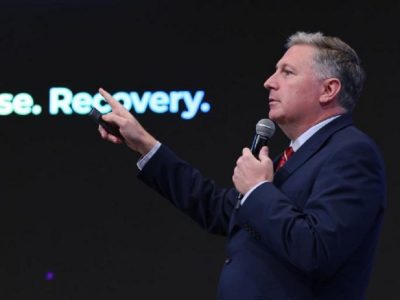
The classic knee-jerk reaction is to say, fire the coach, change the leadership of associations, and reduce the funding till they start performing better. This kind of negative reinforcement may work for kindergarten children, but we are dealing with high-performance adults – individuals much further along in their psychological and […]
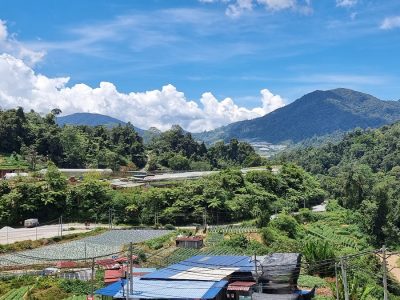
Since its earliest tea plantations in 1929, Cameron Highlands has grown to become a key player in the agricultural landscape of Malaysia, producing 40 per cent of all vegetables grown. Despite Malaysia shifting its economic focus away from agriculture, the industry remains imperative for food security and the livelihoods of […]
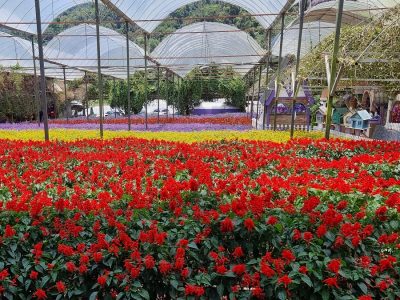
Although at first glance the travel industry and the agricultural sector appear to have nothing in common, they actually share more than meets the eye. The economic benefits of tourism to the agricultural sector can be multiplied several times over. “Tourism brings the end consumers closer to the source, which […]
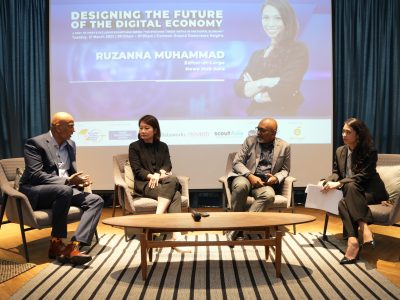
The Malaysia Global Business Forum (MGBF) recently held a high-level roundtable themed ‘Designing the Future of the Digital Economy’, attended by industry leaders and business associations. The guest of honour was Yang Berhormat Syerleena Abdul Rashid, the Member of Parliament (MP) for Bukit Bendera in Penang. The MP’s Special Session […]
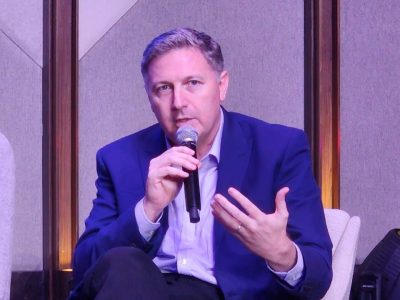
The Malaysia Global Business Forum (MGBF) will be hosting a roundtable on ‘Designing the Future of the Digital Economy’ on 23 February 2023. It is the culmination of the first three MGBF Exclusive Roundtable Series titled ‘The Evolving Threat Matrix in the Digital Economy’ held throughout 2022. According to the […]
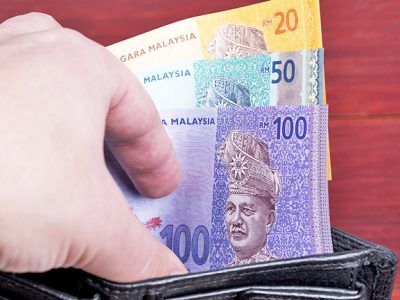
The Founding Chairman of the Malaysia Global Business Forum (MGBF), Nordin Abdullah, today spoke on Bernama TV’s leading English talk show, The Brief, hosted by Jessy Chahal, on the topic of a stable political reality and what that means for the Malaysian economy. Nordin said, “The first thing that it […]

More than 1,100 years ago, Muhammad ibn Musa al-Khwarizmi was developing the mathematical formulas that we know today as algorithms which now have become so intertwined with the business fortunes of global media giants and the very fabric of geopolitics. A series of recent high level international reports have revealed […]
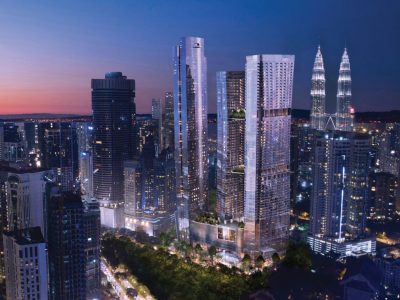
KSK Land has been recognised by the Malaysia Global Business Forum (MGBF) for its role in attracting high net-worth individuals to Malaysia post-pandemic. The first challenge in investor attraction is “selling” the country. In the context of Asia, Malaysia is competing with some very established investment destinations. The second […]
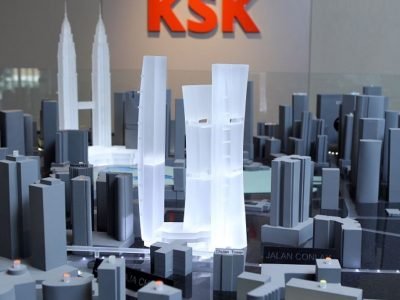
Malaysia, in particular Kuala Lumpur, continues to position itself as a regional centre to do business, educate a family and enjoy a global lifestyle. One company, KSK Land, has taken the lead in positioning itself and the city of Kuala Lumpur as a property investment destination for the global citizen […]
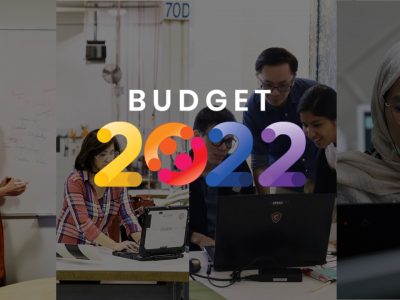
The upcoming budget represents an opportunity to build resilience in the critical sectors that will form the backbone of the country’s future-facing economic ambitions. This however needs to be achieved in the context of managing the community sectors most impacted by COVID-19 over the past two years. The Keluarga Malaysia (Malaysian Family) […]

Malaysia Global Business Forum (MGBF) has moved to support the creative economy as the overall economy moves into a recovery phase following the COVID19 pandemic. As a step in the direction of normalcy, the MGBF has agreed to host the art exhibition “I Know You’re Somewhere So Far” by one […]
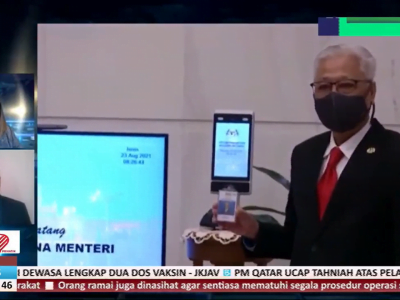
Congratulations to Datuk Seri Ismail Sabri Yaakob for taking up the mantle of the ninth prime minister of Malaysia. There is nothing normal about the situation; it could not have been scripted but it has kept the spectrum of media, mainstream and social, gripped. The first order of business for […]
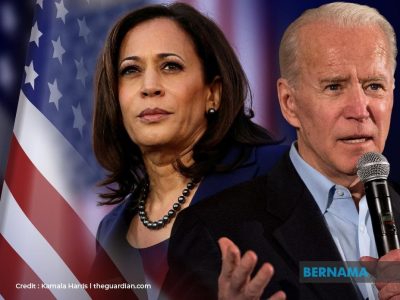
In a stirring speech to the nation, President Joseph R. Biden, Jr. stamped his brand of leadership on the presidency, in his first act as the 46th president of the United State of America, it signaled several shifts. Perhaps the weather was foreboding with snow falling before the ceremony that […]
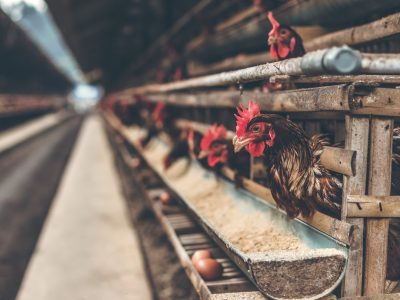
KUALA LUMPUR, 6 July 2022 – As the global economy continues to deal with unprecedented levels of disruption caused by the pandemic and the conflict between Russia and Ukraine, the convergence of energy security and food security issues has become a front-of-mind issue faced by policy makers and consumers alike. […]

KUALA LUMPUR, 23 June 2022 — Malaysia Global Business Forum (MGBF) ties up with scoutAsia to ensure that businesses are equipped with deeper regional insights. The past two years has seen a massive shift in the way businesses are conducted with digitisation, digitalisation and automation continuously being adopted to improve […]
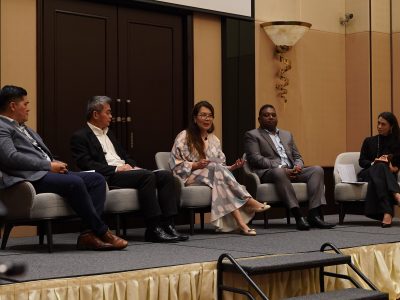
KUALA LUMPUR, 25 May 2022 – The Malaysia Global Business Forum (MGBF)’s exclusive roundtable on ‘Security Concerns in Critical Value Chains’ was held in a hybrid setting yesterday at the Eastin Hotel Kuala Lumpur. The guest of honour was Yang Berbahagia Tan Sri Dato’ Seri Rafidah Aziz, former minister of […]
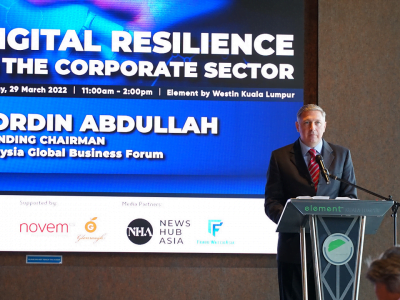
We live in the age of crisis. At the heart of any crisis is the threat of rapid change. Change too deep or too wide that the current coping mechanisms for an individual, corporation or government are unable to remain resilient. An unwelcome paradigm shift, like the proverbial spider, that […]





